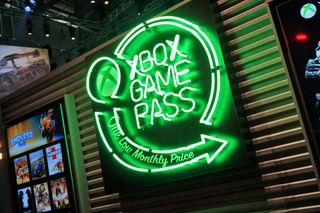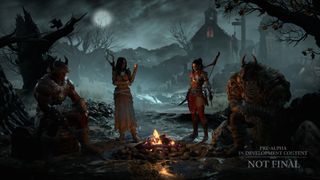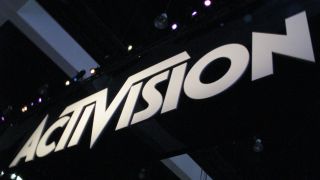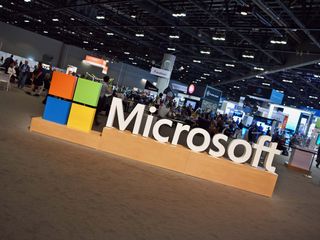Microsoft is buying Activision Blizzard: What this means for Xbox and gamers in general
Another huge gaming industry moment.

Microsoft announced plans to pick up ZeniMax and Bethesda in late 2020, in a deal worth $7.5 billion. Now, Microsoft has revealed another major gaming acquisition, worth almost ten times more. For almost $70 billion dollars, Microsoft is acquiring Activision Blizzard, onboarding franchises like Call of Duty, World of Warcraft, Candy Crush Saga, Diablo, and many, many more.
The deal is a blockbuster moment in the gaming industry, as companies like Netflix, Disney, PlayStation, Tencent, and many more compete for our free time with subscription services. Microsoft's big subscription service is, of course, Xbox Game Pass, and this deal is no doubt inspired to bolster the content therein.
With the dust settling, there are dozens upon dozens of questions about what this actually means. Here's my take on what Xbox fans can expect, and what fans of games like Call of Duty, Overwatch, and so on, can expect from Microsoft too.
Why is Xbox doing this?

Microsoft is on a mission to reach all of the world's 2 billion gamers. If nothing else, this acquisition shows that they are deadly serious about it. Activision is a company built almost entirely around monthly active user engagement, and much like many of Microsoft's main competitors, such as Tencent, this deal is designed wholly around boosting the number of users engaged in its ecosystem.
Activision has declined in recent years (even before you mention the wide-reaching lawsuit into its workplace practices), with Call of Duty selling less, World of Warcraft struggling, and Overwatch 2 nowhere to be seen. Activision has a very poor reputation inside and outside the industry. Their involvement in Blizzard has only accentuated their decline in the public eye, and franchises like Call of Duty have unmistakably started to stagnate. Joining Microsoft, which generally enjoys a high workplace satisfaction rating, should breathe new life into a company that is struggling to reconcile Activision's shareholder greed with the desire to make high-quality games people actually want to play.
Indeed, this is ultimately all about Xbox Game Pass.
Xbox Game Pass potentially gives developers a bit more breathing room. As a platform holder, the dynamic is a bit different for game production. I can see a world where Microsoft would allow a Call of Duty to be delayed for polish reasons, whereas Activision wouldn't, to ensure it hits shareholder goals. As part of Microsoft, whose growth is driven largely by Azure cloud services to business, Xbox is somewhat shielded from the same kind of shareholder scrutiny. This should lead to better experiences for gamers since Microsoft's main goal is to keep Xbox Game Pass subscribers engaged and interested in the service, which recently crossed 25 million paying customers.
Indeed, this is ultimately all about Xbox Game Pass. Being able to include games like Call of Duty, Diablo, Overwatch, and even perks for those games on other platforms, will drive engagement and subscriptions in the service. I suspect we'll see monthly rewards for Call of Duty in Xbox Game Pass, much like we've seen with Halo Infinite. We may even see them for mobile games like Hearthstone and Candy Crush, giving Microsoft ways to deliver value to gamers who aren't traditionally interested in consoles or even PC gaming. This also gives Microsoft a much bigger footprint in mobile in general, which is something they've traditionally struggled to achieve.
Get the Windows Central Newsletter
All the latest news, reviews, and guides for Windows and Xbox diehards.
Speaking of engagement, what does this mean for exclusivity?
Will Call of Duty, etc. go exclusive to Xbox?

While we don't know for certain what Microsoft plans to do, it has hinted that it intends to keep some games exclusive, while others will remain multiplatform, during a call to investors earlier today. If I had to guess, I could foresee single-player games like any potential Sekiro follow-up going exclusive to Xbox, but games like Call of Duty and Overwatch, I feel, are far more likely to remain multiplatform.
Much like Minecraft, Call of Duty is a franchise that is far bigger than any single platform potentially. Removing it from PlayStation is a sure-fire way to generate a mountain of ill will. Call of Duty is also driven by microtransactions, earning itself millions of dollars from the PlayStation platform on a consistent basis. The entire business model of Call of Duty revolves around access, with games on mobile phones, PC, and every platform possible. It's for that reason I highly, highly doubt we'll see Call of Duty yanked from PlayStation on that basis. What I do expect to see is Call of Duty and similar games go straight into Xbox Game Pass at launch, giving Xbox consoles a value proposition that won't exist on PlayStation. I also expect Xbox Game Pass Ultimate subscribers to get special perks in Call of Duty, too, much like the exclusivity deals we've seen hit PlayStation in recent years.
However, I can see franchises like Diablo IV, which are cooperative, PvE-oriented, and less microtransaction driven, potentially go exclusive to Xbox.

These are games that may benefit Xbox the most driving engagement with Xbox Game Pass and the console ecosystem directly and don't necessarily depend on broad annualized appeal. I also suspect games that currently aren't on console, like World of Warcraft, potentially hit Xbox as exclusives too, especially given the fact PlayStation has Final Fantasy XIV as an exclusive on its platform. While, naturally, these online games would benefit from larger cross-platform audiences, Microsoft may seek to put the Xbox stamp on some games that have no footprint on PlayStation. This will create an association and elevate the Xbox platform's status as a place for high-quality exclusive games.
Ultimately, there's no way to know for sure which games will go exclusive or not. For now, I think it's best to work on the assumption that Call of Duty and Warzone will remain multiplatform for definite, while some of the smaller games could go fully Xbox and Windows exclusive. Either way, all of these games will definitely launch day one into Xbox Game Pass, which is currently exclusive to Xbox consoles, PC, the web, and Android.
Will regulators get mad?

Even with the acquisition, Xbox will still be third on the list for gaming revenue. Sony and Tencent are both far ahead of Microsoft, even with the combined revenues from Activision, Blizzard, and King. It's unlikely that regulators will step in to prevent Microsoft from being "third-placed," even if it seems like on the surface that this gives them a large share of the publisher output. They still don't have the largest gaming platform footprint by a longshot, especially when you factor in Apple's App Store and Google's Android Play Store, which boast truly absurd gaming revenues, which utterly dominate growth rates in the gaming sector.
Journalists and commentators who live inside the console industry bubble may be raising eyebrows, but Microsoft should find it fairly easy to argue that they still remain a fairly smaller part of the overall gaming pie. Regulators would be unlikely to stop Microsoft from competing with Apple and Google at the platform level, and Sony and Tencent at the publisher level, considering all of them remain far larger even after this acquisition. The fact Activision is a company arguably in decline will also help the argument, delivering an exit for shareholders who are probably happy to get rid of Activision from their portfolio, given the lawsuits the company is faced with, and the declining footprint of Call of Duty and World of Warcraft.
In a world where Disney was allowed to acquire basically everything this side of Warner Brothers, anti-trust arguments don't seem to hold any water — but anything can happen between now and 2023 when this deal is expected to close.
The deal isn't fully closed yet

Indeed, Microsoft and Activision expect the deal to finalize somewhere between June 2022 and July 2023, and many things can happen between now and then. Deals of this magnitude will undoubtedly rattle some politicians in the U.S. and EU, especially among those who are seeking to reign in "big tech." Microsoft's avoidance of social media and other more destructive and controversial forms of entertainment could help it here, given how Microsoft positions Xbox as a very sanitized and safe platform, devoid of the typical political discourse we often see across Facebook's services, for example. But indeed, until the deal is fully closed, we won't know for sure.
What I'm personally hoping above all else is that Microsoft can turn Activision around, not just for gamers, but for the employees that work there.
What I'm personally hoping above all else is that Microsoft can turn Activision around, not just for gamers, but for the employees that work there. Activision is notorious for treating its workers like garbage, with large and seemingly arbitrary layoff rounds to pad quarterly figures, unequal pay, and of course, widespread allegations of sexist workplace culture. Microsoft is by no means entirely innocent in this area either, but it seems to be in a far better place than Activision, and will likely move further, faster, to repair the damage and heal the issues Activision has faced in recent years.
We can also only hope this will lead to better games too. Activision has been notorious for shipping half-baked, low-quality titles in recent years. Call of Duty: Vanguard is one of the weakest entries in the series to date, seeing sales declines not seen for Call of Duty in years. World of Warcraft: Shadowlands has also been so ill-received by fans that it drove a mass player exodus to Final Fantasy 14 Realm Reborn, to the point where Square Enix had to shut down sales of the game.
Hopefully, Microsoft can give Activision's developers breathing space to focus on quality over quarterly earnings, like the Blizzard of old. There's a lot of speculation about how all of this may play out, and ultimately, we won't know how Microsoft's culture will impact Activision for years to come. For everybody involved, and gamers, I can only hope it all ends up being positive.

Jez Corden is the Executive Editor at Windows Central, focusing primarily on all things Xbox and gaming. Jez is known for breaking exclusive news and analysis as relates to the Microsoft ecosystem while being powered by tea. Follow on Twitter (X) and Threads, and listen to his XB2 Podcast, all about, you guessed it, Xbox!